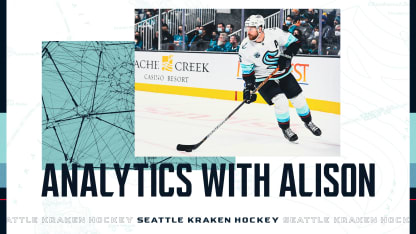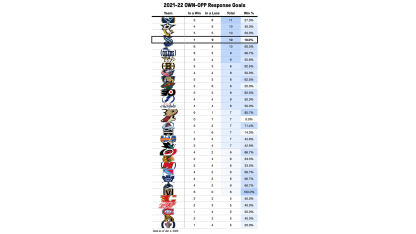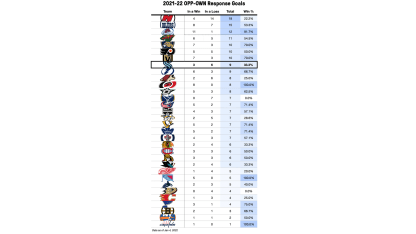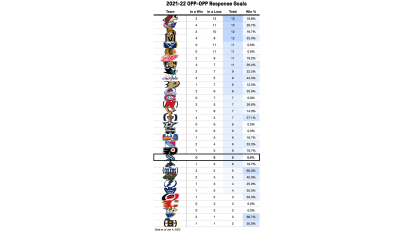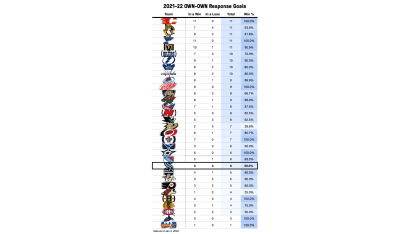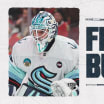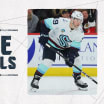So, what is a response goal and what does it truly say about a team? Well, therein lies the need for a little more discussion.
Let's dig in.
There is no formal stat called "response goals." The idea of it though, can be traced to a few places.
Kraken play-by-play broadcaster John Forslund has used the term "answer goals" for years to refer to any two goals that occur within one minute (game clock time) of another. I personally first heard the term from Todd Richards in 2015.
Richards' definition referred to goals scored within two minutes of one another, and John Tortorella used that same delineation and to him, "response goals" were a proxy for momentum in a game.
Regardless of the time definition you choose, an important point: A response goal is made up of any two goals within a specific time frame, meaning there are four types of response goals:
None of this feels like it matters, though, when the Kraken are working to find their way back into the win column after five losses - the last three of which included four response goals that decided the final outcome (1 OPP-OWN; 3 OWN-OPP).
And it's valid to acknowledge that trend. After all, response goals describe what's going on during play and they tie directly to the final results. But we haven't (yet) put this stat through any mathematical rigor to see if it truly is predictive or just descriptive of what happens in a game.
Let's take a cursory look at this concept of response goals of every type, examining across the league to see if the trend Seattle is working through right now is part of a bigger NHL tendency.
First up, because it's front of mind, let's look at OWN - OPP response goals. Here's how each team stacks up in terms of how many such goals allowed this season and the win percentage in those games (teams sorted by number of "response goals").

